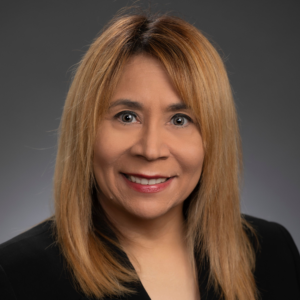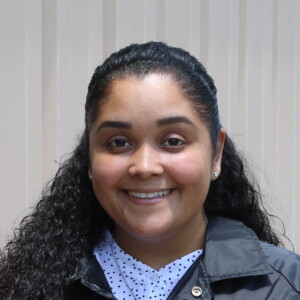About Family and Community Health
In Texas, chronic diseases significantly impact public health, contributing to high mortality rates and substantial healthcare costs. Chronic diseases such as heart disease, cancer, stroke, chronic lower respiratory diseases, and diabetes are among the leading causes of death in Texas (CDC.gov). In 2015, an estimated 15.6 million Texans had at least one chronic disease, with 6 million having two or more (fightchronicdisease.org). Approximately 8.3% of Texas adults have three or more chronic health conditions, including diabetes, hypertension, cardiovascular disease, cancer, or mental health (americashealthrankings.org).
Prairie View A&M University (PVAMU)-Cooperative Extension Program recognizes that addressing the state of family and community health requires a comprehensive approach that considers the various contributing factors and ensures that health disparities are reduced. Community involvement and education are integral to improving the state of family and community health.
PVAMU Extension’s Family and Community Health (FCH) unit is made up of a network of subject matter experts, including the Expanded Food and Nutrition Education Program (EFNEP) and Smart Eating Active Living (a SNAP-Ed program) and local educators known as Extension Agents.

Jacquelyn M. White, Ed.D
Program Leader

Jennifer Garza, DHA
Assistant Program Leader
Family and Community Health Overview

A Glance at FCH’s Impact in 2024

2024 Mental Well-Being
Breaking the Silence: Empowering Voices for Mental Well-Being Awareness
The 2024 Mental Well-Being Conference provided space for meaningful discussions and insight sharing while promoting a deeper understanding of mental well-being issues.
The Family and Community Health component of PVAMU Extension recognizes that strong families are important to a prosperous and productive society. The family is the major provider of joy, security, values and goals. The Extension staff work to plan and deliver research-based family focused programs in health and well being, parenting, life skills and nutrition to clientele, but, not excluding other audiences, that will serve as a catalyst to improve the quality of living.
We offer
Goal: To foster healthy lifestyles by providing education on nutrition, physical activity, and wellness practices through various curricula.
- Balanced Living
- Diabetes Self-Management Education-Live well, Eat well, be Active with Diabetes (LEAD)
- Chronic Disease Prevention
- Mental Wellbeing
- Mind Matters Program
Goal: To encourage healthier and more active lifestyles by providing nutrition and physical activity education through banner programs.
Smart Eating, Active Living (SEAL)
-
-
- Nutrition educators teach eligible adults and children in the Supplemental Nutrition Assistance Program-Education (SNAP-Ed) how to select healthier food and lifestyle choices.
-
Expanded Food and Nutrition Education Program (EFNEP)
-
-
- Trained EFNEP educators teach children and families in four core areas: Diet Quality and Physical Activity, Food Resource Management, Food Safety, and Food Security.
-
While all curricula are listed below, FCH, SEAL, and EFNEP utilize different curricula for each program.
-
-
- A Taste of African Heritage
- Nutrition Fact Sheets
- A Taste of Latin Heritage
- Teen Cuisine
- CHFFF Choose Health Food, Fun, and Fitness
- ESBA Eating Smart Being Active
- Food Safety
-
Goal: To strengthen families and communities by offering programs that support youth development, family stability, and community engagement through various curricula.
- Parenting the Love and Logic Way
- Love and Logic: Adults Supporting Youth with Challenging Pasts
- Parenting a Second Time Around (PASTA)
- Building Better Family Bonds
- Life Skills Programs (effective communication, relationship building, coping skills)
Goal: To enhance the economic well-being of rural and urban communities by providing financial literacy through programs.
- Financial Literacy
- Money Matters Workshops
- Savvy Saving Seniors
- Real Money, Real World
- Your Money, Your Goals
Resources
Meet Our Staff
Headquarters
College of Nursing
Extension Agents
In the County (FCH)
Expanded Food and Nutrition Education Program (EFNEP)
In accordance with Federal civil rights law and U.S. Department of Agriculture (USDA) civil rights regulations and policies, the USDA, its Agencies, offices, and employees, and institutions participating in or administering USDA programs are prohibited from discriminating based on race, color, national origin, religion, sex, disability, age, marital status, family/parental status, income derived from a public assistance program, political beliefs, or reprisal or retaliation for prior civil rights activity, in any program or activity conducted or funded by USDA (not all bases apply to all programs). Remedies and complaint filing deadlines vary by program or incident.
Persons with disabilities who require alternative means of communication for program information (e.g., Braille, large print, audiotape, American Sign Language, etc.) should contact jmwhite@pvamu.edu by email, call 936-261-5132, or contact USDA through the Telecommunications Relay Service at 711 (voice and TTY). Additionally, program information may be made available in languages other than English.
To file a program discrimination complaint, contact Ms. Toya Douglas, M.B.A., Director of Equal Opportunity & HR Compliance, P.O. Box 519, Mail Stop 1337, Prairie View, TX 77446-0519, 936-261-1792; complete the USDA Program Discrimination Complaint Form, AD-3027, found online at How to File a Program Discrimination Complaint and at any USDA office; or write a letter addressed to USDA and provide in the letter all of the information requested in the form. To request a copy of the complaint form, call (866) 632-9992. Submit your completed form or letter to USDA by: (1) mail: U.S. Department of Agriculture, Office of the Assistant Secretary for Civil Rights, 1400 Independence Avenue, SW, Mail Stop 9410, Washington, D.C. 20250-9410; (2) fax: (202) 690-7442; or (3) email: program.intake@usda.gov.
USDA is an equal opportunity provider, employer, and lender.







































